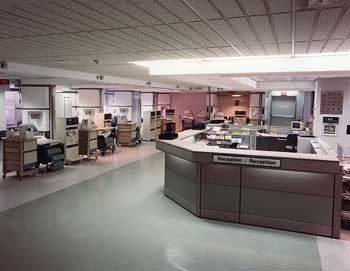Board for Licensing Health Care Facilities
About
- Background Checks Required for Those Providing Patient Care
- Board Interpretive Guidelines
- Current Board Policies
- Obsolete Board Policies
- Procedures for Appearing Before the Board
For more information on unusual events, visit our Tennessee Improving Patient Safety website

The Office of Health Care Facilities is responsible for ensuring quality of care in hospitals, nursing homes, ambulatory surgical treatment centers, and other kinds of health care facilities in Tennessee. The Office licenses and/or certifies 21 types of health care facilities, including laboratories.
The Office also conducts state licensure and/or federal certification surveys annually for participation in the Medicare and Medicaid programs, and is responsible for the investigation of all facility complaints received, and the issuance and collection of state and /or federal civil monetary penalties. Facility surveys and complaint investigations are coordinated and conducted from our three regional offices located in Jackson, Nashville, and Knoxville.
The Board for Licensing Health Care Facilities consists of eighteen members who are appointed by the Governor, including two physicians, one dentist, one pharmacist, one registered nurse, two hospital administrators of acute care hospitals, one osteopathic physician, three representatives of the nursing home industry with one from a hospital-operated nursing home, one architect, one operator of a home care organization, one operator of a residential home for aged, two consumer members, and two ex-officio members namely the Commissioner or designee, and executive director of the Commission on Aging. The Commissioner or designee shall serve as chair of the Board. The appointments to the Board shall be for four year terms. A quorum for the transaction of all business is ten members.
The Board is empowered to license and regulate all hospitals, recuperation centers, nursing homes, homes for the aged, home care organizations, assisted living facilities, birthing centers, residential hospices, and ambulatory surgical treatment facilities.
The Board is required to adopt or promulgate fire and life safety code regulations and minimum standards for patient care in health care facilities, set minimum compliance standards or regulations and specifications for construction plans of health care facilities and conduct annual compliance inspections.
The Board may suspend or revoke licenses for chronic violations of federal or state laws or regulations or for any other practice deemed detrimental to patient health, safety, or welfare.
Guidance
- Board Interpretive Guidelines
- Current Board Policies
- Obsolete Board Policies
- Procedures for Appearing Before the Board
For more information on unusual events, visit our Tennessee Improving Patient Safety website